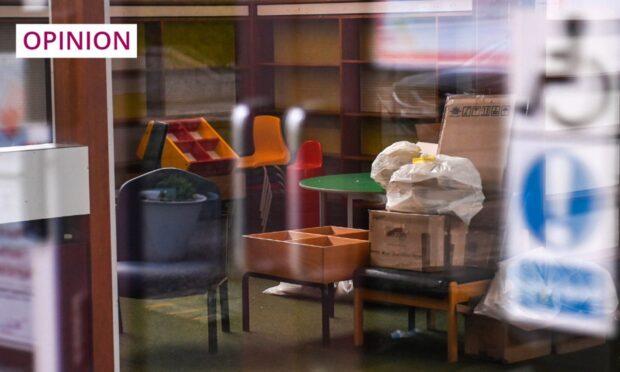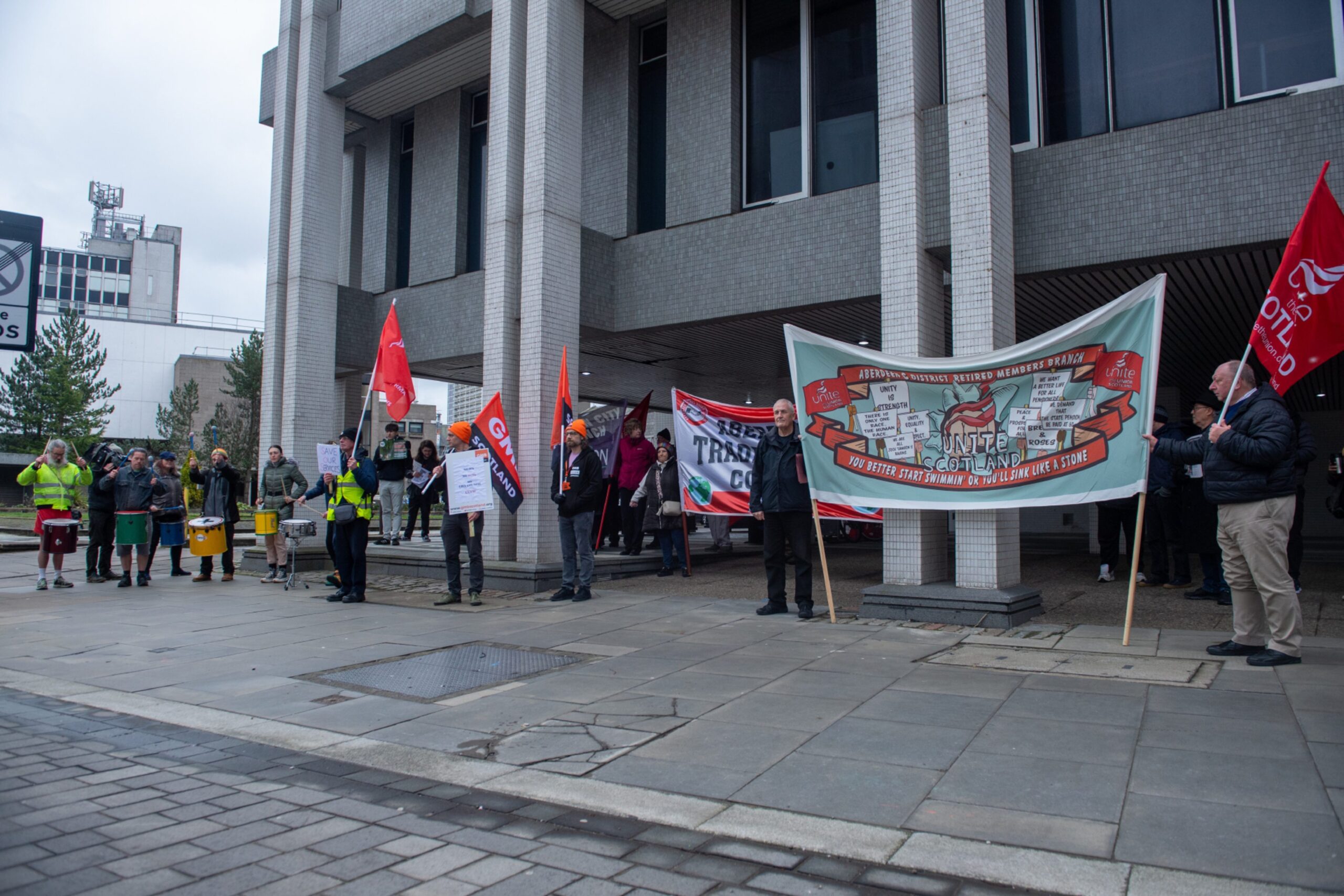March is the month for council budgets.
It’s a time for using up end-of-year monies and setting out new priorities. Yet, most councils are facing massive cuts in funding, and reducing necessary services for which the public pay.
This has been the case for many years. It’s due to a combination of lack of funds and poor management. There is also the added complication of buck-passing between the Scottish Government and local authorities.
Over the years, Holyrood has imposed various burdens on councils without fully funding them. This leaves a constant cash shortfall, which has to be picked up by councils.
Without full funding, local authorities have been forced to cut back on services and sell off assets to cover the gap. The difficulty is, you can only sell off an asset once, but the maintenance costs continue.
Neglect of regular maintenance has resulted in school buildings requiring renovation, pavements not being cleaned, potholes in the roads neglected – all giving an appearance of general dilapidation. It’s as if no one cares.
Unfortunately, we have Scottish parliamentary secretaries who think that education matters like classroom violence, lack of childcare, NHS waiting lists, public transport issues, council employee wages and more have nothing to do with them.
In Aberdeen, the future of 200 crumbling houses in the Balnagask area, due to Raac concrete, is down to the city council to fund, despite the Scottish Government being given an additional £300 million in the recent UK budget. I’m willing to bet that if those houses had been in the Central Belt, repair money would have been instantly forthcoming.
Councils have been short-changed
When the first minister announced a fully-funded council tax freeze, he misled councils into thinking they would get the increases they needed to retain services. But, actually, all they were going to get was up to 5% funding. So, once again, councils have been short-changed and left to pick up the tab.
Many councils are facing a housing crisis, which is impacting on their residents. Those councils have chosen to directly contact the UK communities minister, Michael Gove, to see if he can provide some funding.
This, of course, undermines the whole principle of having a Scottish Government dealing with Scottish matters.
The cause of this anomaly was sown by the Scottish ministers constantly blaming Westminster for their own inability to recognise current issues and set their Scottish priorities accordingly. I believe Scotland could be governed better.
Cutting community services is a false economy
The work of your local council has a greater impact on your everyday life than you can imagine. Yet, many elected councillors bring few skills to the table. Many never even expected to be elected.
It is important that those standing to represent an area have some background knowledge in areas like finance, education, social care, decision making, creative thinking, presentation skills and so on. It’s a position of responsibility, and needs serious commitment to set a budget of over £600 million.
The data currently used to determine council funding is out of date
Speaking to the constituents they represent would inform them that it’s wrong to close community centres, libraries and swimming pools, and to cut the jobs of classroom assistants, school patrollers and outreach workers. These places and people create vibrant communities. Cutting services in them year after year over the last two decades is a false economy.
The data currently used to determine council funding is out of date. We know there is a massive increase in demand for social care and educational requirements, especially specialist help in schools. But the Scottish Government is not providing the money to cover them.
Reduce councils, councillors and bills
It’s time to rebalance our governance by reducing the number of Scottish councils to 10. Thirty-two is far too many. Enlarged authority areas would have economies of scale and prevent duplication. For example, Aberdeen and Aberdeenshire could combine as one authority.
Then, recycling bin collections would be standard and staff could be shared. There could be a common regional roads maintenance programme, a single tourist strategy, a business development plan, sharing of vehicles, sharing of educational needs. That’s bound to result in savings.
Imagine only 10 regional authorities with 10 chief executives and fewer middle managers. There’s a big saving for a start!
Currently, Scotland has 1,227 councillors. We need to reduce that number. With the best will in the world, you cannot represent every individual point of view.
Operating an elected lord provost system, with similar powers as those given to the elected mayors in Manchester and the West Midlands, would give us tighter structures, a larger tax base, and better, more informed decision-making, with a stronger voice. We need bold and strategic thinking.
Then, we need to start to look at the competence and abilities of our Scottish parliamentarians.
Len Ironside CBE is a former champion wrestler who served as an Aberdeen councillor for 35 years, with four years as council leader



Conversation